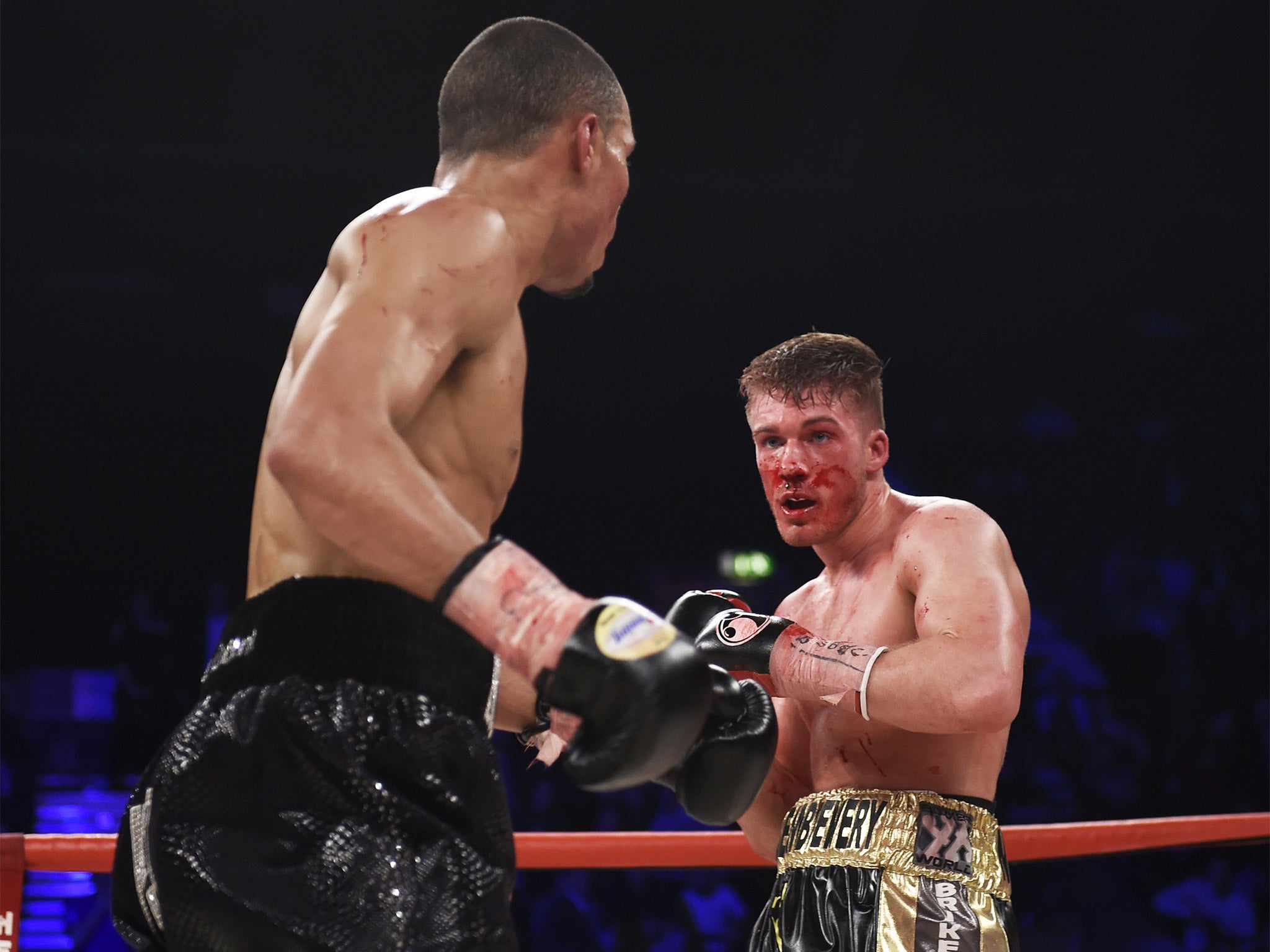Nick Blackwell: Is boxing safe, why was it not stopped earlier and how many deaths occur in the ring?
Blackwell was placed into a medically induced coma after his middleweight title defeat to Chris Eubank Jr

Your support helps us to tell the story
From reproductive rights to climate change to Big Tech, The Independent is on the ground when the story is developing. Whether it's investigating the financials of Elon Musk's pro-Trump PAC or producing our latest documentary, 'The A Word', which shines a light on the American women fighting for reproductive rights, we know how important it is to parse out the facts from the messaging.
At such a critical moment in US history, we need reporters on the ground. Your donation allows us to keep sending journalists to speak to both sides of the story.
The Independent is trusted by Americans across the entire political spectrum. And unlike many other quality news outlets, we choose not to lock Americans out of our reporting and analysis with paywalls. We believe quality journalism should be available to everyone, paid for by those who can afford it.
Your support makes all the difference.Why are we asking this question?
The spotlight has fallen on the sport in recent days following the hospitalisation of Nick Blackwell, who lost his British middleweight crown to Chris Eubank Jr after their title bout was stopped in the 10th round.
Blackwell, who had been bloodied during the early rounds, was on his feet when referee Victor Loughlin halted the contest but could barely see out of his swollen left eye.
The 25-year-old collapsed in the ring shortly after and was subsequently taken to hospital, where it was discovered that he had suffered bleeding to the brain.
Blackwell remains in a medically induced coma at St Mary’s Hospital in Paddington, London. He will, in all likelihood, never fight again.
Why was it not stopped earlier?
Though unfavoured, bloodied and unlikely to claim victory over the superior Eubank Jr, Blackwell was nevertheless competitive throughout.
The sport’s great attraction is that contests can turn on one punch and it is fair that, for as long as Blackwell was in the fight, he was allowed to see it out.
In fact, Eubank Jr’s stranglehold on the fight, conversely, almost allowed Blackwell back into the contest. The challenger’s characteristic confidence turned into over-confidence, when he turned to remonstrate with rival Billy Joe Saunders in the crowd mid-round, he allowed Blackwell to rock him with right hand.
Ultimately, Blackwell’s injury, which could not be seen by the referee, did not prevent him from offering competitive resistance to Eubank Jr. He was not dominated and any decision to stop the fight before the ninth or tenth rounds would have been criticised as premature.
How many deaths occur in the ring?
Nevertheless, boxing is a relatively dangerous sport and is rightly recognised as such. Since 1900, there have been an average of 10 boxing deaths per year, according to a study by researchers in Germany.
‘Death under the Spotlight: The Manuel Velaquez Boxing Fatality Collection’ offers the most comprehensive record of ring fatalities throughout history.
It was started in 1940 for Manuel Velaquez, a boxing abolitionist, and although it has not been updated since October 2011, it has recorded 2,036 deaths as a result of injuries inflicted while boxing, dating back to 1725.
One of the most well-known ring deaths is that of Johnny Owen, a Welsh bantamweight who died at the hands of Lupe Pintor in Los Angeles in September 1980.
Owen, known as the ‘Merthyr Matchstick’ on account of his skinny frame, was a quiet and shy 24-year-old at the time.
The Observer’s boxing correspondent Hugh McIlvanney famously remarked, in his report from the fight, how tragic it was “that he found himself articulate in such a dangerous language.”
What do those in boxing say?
“That risk is always there, whatever the sport, and some may argue rightly that it is more acute in boxing than some others, but statistics continue to show that boxing – notably in this country, where the safeguards are so much improved – is by no means the most dangerous activity of all,” writes promoter Frank Warren on his blog. “Tragic incidents happen in boxing as they do in many other sports, not least equestrianism and rugby.”
Kellie Maloney, another promoter, has suggested that weigh-ins should take place on the same day as fights in order to prevent injuries linked to dehydration. "I think it’s something to do with dehydration, making weight, because the fluid around the brain is drained out when fighters have to make weight," she told the Today programme.
Join our commenting forum
Join thought-provoking conversations, follow other Independent readers and see their replies
Comments